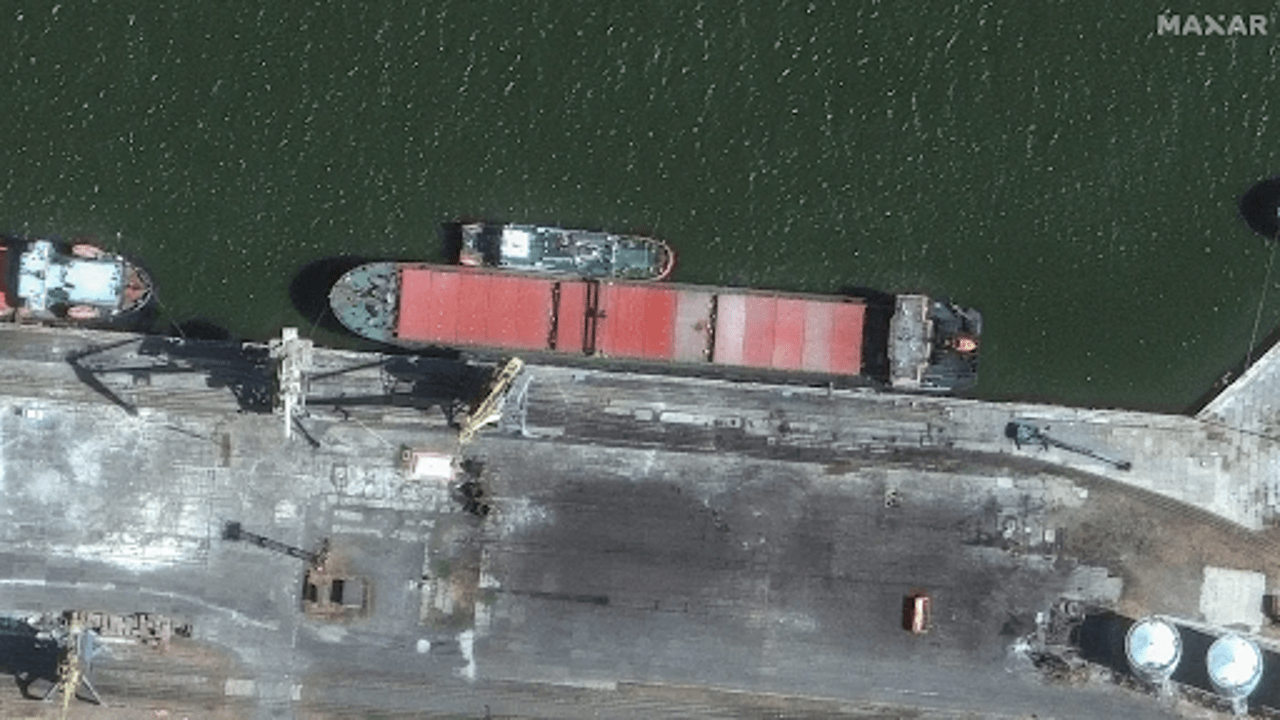
The Port Olya 3 ship was spotted in satellite images taken by Maxar Technologies on September 4, docked at Port Olya in Astrakhan, Russia. CNN
A Russian cargo ship, the Port Olya 3, recently came under scrutiny after it was spotted at a Russian port on the Caspian Sea, following its departure from an Iranian port. Satellite images from September 4, 2024, show the ship docked at Port Olya in Astrakhan. Before this, it had been in Amirabad, Iran, on August 29. The ship’s transponder was turned off at some point during its journey.
According to the U.S. Treasury Department, the Port Olya 3 was used by the Russian Ministry of Defense to transport close-range ballistic missiles from Iran to Russia. This marks the first reported shipment of these missiles to Russia as of early September 2024. In response, the Treasury announced sanctions on the Port Olya 3, along with other vessels and several Iranian individuals.
This development signifies a notable escalation in Iran's support for Russia. The two countries have strengthened their military ties since Russia invaded Ukraine in February 2022. Iran has previously supplied Russia with thousands of drones and is believed to have helped establish a drone manufacturing facility in Russia.
The satellite images revealing the Port Olya 3 came shortly after U.S. Secretary of State Antony Blinken's remarks in London. Blinken indicated that the Russian military had received Iranian Fatah-360 ballistic missiles and anticipated their use in Ukraine soon. These missiles have a range of up to 75 miles and can carry a significant payload, making them effective for targeting Ukrainian positions from a distance.
The Institute for the Study of War predicted that these Iranian-supplied missiles would likely be used by Russian forces to target Ukrainian infrastructure in the coming months. Despite this, Iran’s Foreign Minister Seyed Abbas Araghchi denied the missile transfer, claiming the reports were based on faulty intelligence.
The Ukrainian Foreign Ministry responded to the allegations by summoning the Iranian charge d’affaires. Ukraine warned of severe consequences for their diplomatic relations if the missile transfer was confirmed.
The Port Olya 3 has frequently visited Iranian ports this year, and its recent trip to Astrakhan is part of ongoing military exchanges between Iran and Russia. The U.S. has privately warned Iran that supplying these missiles represents a serious escalation. This collaboration not only involves missile transfers but also includes the sharing of technology and information, including on nuclear and space issues.
It remains uncertain whether this development will influence Western allies to adjust their stance on the use of Western missiles by Ukraine. Ukrainian President Volodymyr Zelensky has urged for greater flexibility in targeting Russian locations with Western missiles. This issue is expected to be discussed further in an upcoming meeting between U.S. President Joe Biden and UK Prime Minister Keir Starmer.















